A tragic, often-overlooked post-WWII story: Leverett author’s new book follows Jewish survivors who attempted to go back home
| Published: 09-01-2023 3:02 PM |
Dean Cycon of Leverett has had many careers. Locally, he is perhaps best known as the founder of Dean’s Beans in Orange. This company is dedicated to roasting and selling flavorful, organic coffee that reflects care for the environment and for the growers of the coffee beans.
Cycon has also worked as an environmental and social-justice lawyer. Most recently — particularly with his recent retirement from Dean’s Beans, which is now an employee-owned business — he has devoted himself to a longtime avocation, writing.
In all these endeavors, he has been driven by a passion for justice and activism nurtured during his teenage years during the Vietnam War.
His first novel, “Finding Home: Hungary 1945” (Koehler Books, 378 pages, $21.95), was released in June. It is a beautiful, moving piece of fiction based on Cycon’s research about Holocaust survivors.
The book opens as six concentration camp survivors are dropped off in 1945 at their hometown of Laszlo in Hungary just as they were taken from that town a year earlier: in cattle cars. The six are all that is left of Laszlo’s 300 Jews.
The book’s main protagonist is Eva, a teenager who kept her sanity in Auschwitz by playing imaginary piano keys over and over again.
A gifted piano student who was accepted to the Liszt Academy of Music in Budapest before her deportation, she dreams of attending the school at last and making her piano teacher proud.
The other survivors include a baker, a butcher, two farmhands, and a deeply religious young Hassidic man from a nearby neighborhood. Despite all that they have endured, most of them hold onto a hope that they will be able to return to their homes and rebuild their lives.
Article continues after...
Yesterday's Most Read Articles
 On The Ridge with Joe Judd: What time should you turkey hunt?
On The Ridge with Joe Judd: What time should you turkey hunt?
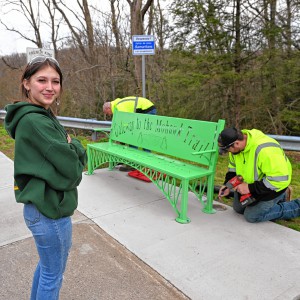 Franklin Tech student welds artistic bench for French King Bridge
Franklin Tech student welds artistic bench for French King Bridge
 Formed 25,000 years ago, Millers River a historic ‘jewel’
Formed 25,000 years ago, Millers River a historic ‘jewel’
 Police report details grisly crime scene in Greenfield
Police report details grisly crime scene in Greenfield
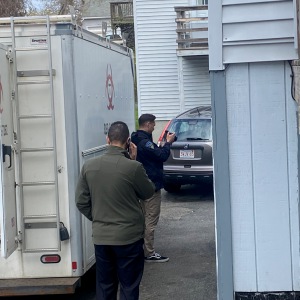 Authorities ID victim in Greenfield slaying
Authorities ID victim in Greenfield slaying
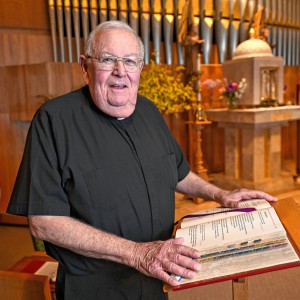 ‘I have found great happiness’: The Rev. Timothy Campoli marks 50 years as Catholic priest
‘I have found great happiness’: The Rev. Timothy Campoli marks 50 years as Catholic priest
These hopes are quickly dismissed. Their houses, businesses and goods have been given or sold at a discount to non-Jewish community members who in general have no intention of giving up their new, relatively prosperous existence.
Eva comes closest to retrieving a part of her pre-war life, although that retrieval is difficult for her. Before her family was deported, her father gave their house into the keeping of the town’s mayor.
The mayor’s wife, who proudly wears the clothes and jewelry Eva’s mother was forced to abandon when she was taken away, reluctantly agrees to allow Eva to come to the house daily to practice the piano each afternoon … if the girl spends each morning working as a maid in her former home.
Cycon examines a wide variety of attitudes and behaviors among both the concentration camp survivors and their non-Jewish former neighbors. The latter are an odd and ultimately disastrous mixture.
Some feel guilt and try to befriend the survivors. Some ignore their “inconvenient” return. Others cling to centuries-old myths about Jewish power, wealth and evil intentions.
In the end, most of the survivors find that they literally or figuratively cannot live in their former hometown. Eva, still resolute in her intention to attend the Academy, makes her way to Budapest to try her fate there.
“Finding Home” grabs the reader’s attention from the first page and moves swiftly and emotionally. I cried as I read the plight of the six souls who left the concentration camps only to find that they may never be completely free.
By making Eva a pianist, Cycon brings a little light to this otherwise dark story. Through her determination, and through the power of art, she brings hope to a world that needs it desperately.
I spoke with Dean Cycon recently and asked him whether he is an artist himself.
“I married into a family of artists,” he explained. “My in-laws are both sculptors and painters, and my wife is a painter, and my daughters are musicians and painters. I’m surrounded by art.”
He noted that his musician daughter was instrumental in helping him gain some perspective on the life of a young female pianist.
He came to this story by accident. He was researching early trade routes in Europe (a topic dear to his coffee-importing heart), he recalled.
“I stumbled upon an article about what happened when people who had survived concentration camps in Poland went home and found neighbors living in their homes, and (the neighbors) murdered them.
“I thought, ‘I’m 60 years old. I’m very educated. I’m very traveled. How could I not know about this?’ There was a lot of academic work about this but very little popular writing.”
He observed that many tales of concentration camp survivors move directly from their lives in the camps to their experiences making new homes in Palestine or the United States. Few of the tales touch on repatriation.
He chose Hungary in part because it was different from much of the rest of Europe.
Unlike, say, Jewish citizens of Poland, where my Jewish grandparents never felt secure, many Hungarian Jews were integrated into their communities. They believed they were relatively safe from deportation, protected to some extent by their government.
“Then (in 1944) Hitler ordered Eichmann in,” Cycon sighed. Adolf Eichmann, as readers probably know, was a high-ranking Nazi official and the major implementer of the so-called Final Solution.
“Eichmann arranged those deportations in a matter of weeks. In eight weeks they deported 600,000 people, and they managed to murder a good portion of those.”
Cycon delved into the archives, helped by generous translators. He also journeyed twice to Hungary to interview both concentration camp survivors and their gentile neighbors.
He realized that the latter interviews might be controversial, but he deemed them important. “I didn’t want to make the townspeople cartoon evil characters,” he insisted.
“I wanted to understand what was going on there, because that’s the key … I really needed to understand these people, at the risk of people saying, ‘You’re making excuses for them.’”
Although Dean Cycon didn’t want to delve too deeply into contemporary American antisemitism, as a crusader for social justice he kept it in mind throughout his writing and throughout our interview.
He finished by reminding me of “the obvious question: If it happened there, can it happen here?”
Dean Cycon will read from “Finding Home” and sign copies of the book on Thursday, Sept. 7, at the Athol Public Library. The book is also available at the World Eye Bookshop, at Amherst Books, at Broadside Books in Northampton, and online.
Tinky Weisblat is an award-winning author and singer. Her new book is “Pot Luck: Random Acts of Cooking.” Visit her website, TinkyCooks.com.

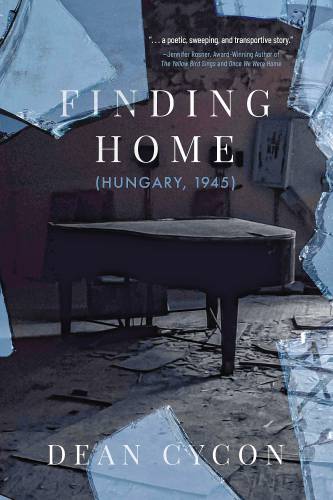
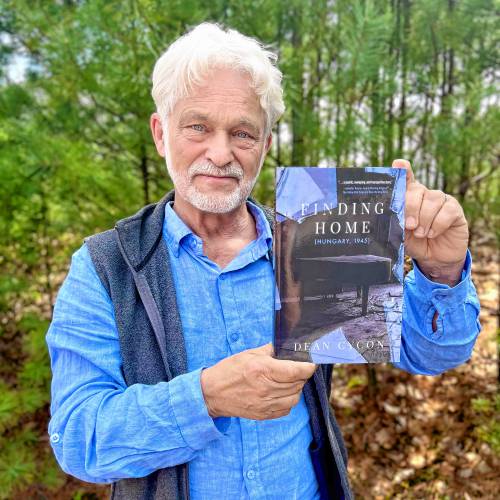
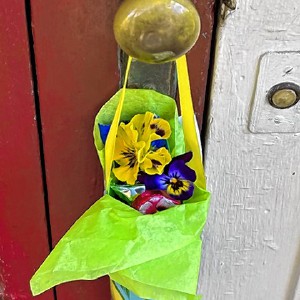 Sharing the gift of spring: The tradition of making May Baskets for May Day
Sharing the gift of spring: The tradition of making May Baskets for May Day Tips for planning a successful garden: Creating a healthy garden is all about maintaining good habits
Tips for planning a successful garden: Creating a healthy garden is all about maintaining good habits Speaking of Nature: Bird of my dreams, it’s you: Spotting a White-tailed Tropicbird on our cruise in Bermuda
Speaking of Nature: Bird of my dreams, it’s you: Spotting a White-tailed Tropicbird on our cruise in Bermuda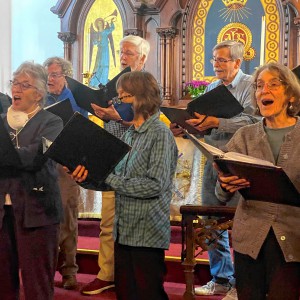 Embracing both new and old: Da Camera Singers celebrates 50 years in the best way they know how
Embracing both new and old: Da Camera Singers celebrates 50 years in the best way they know how
